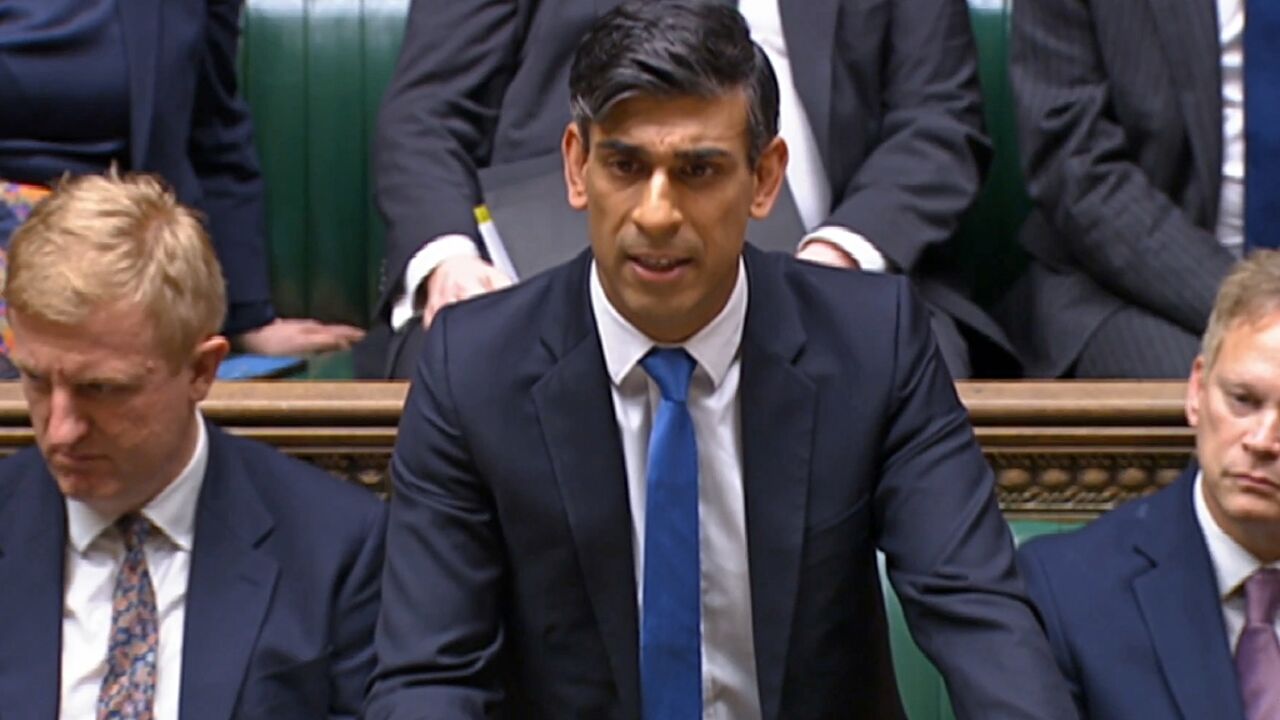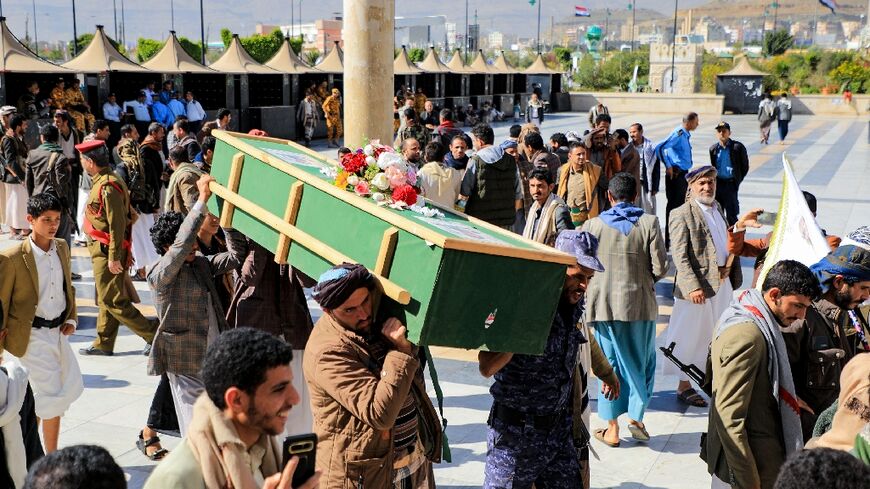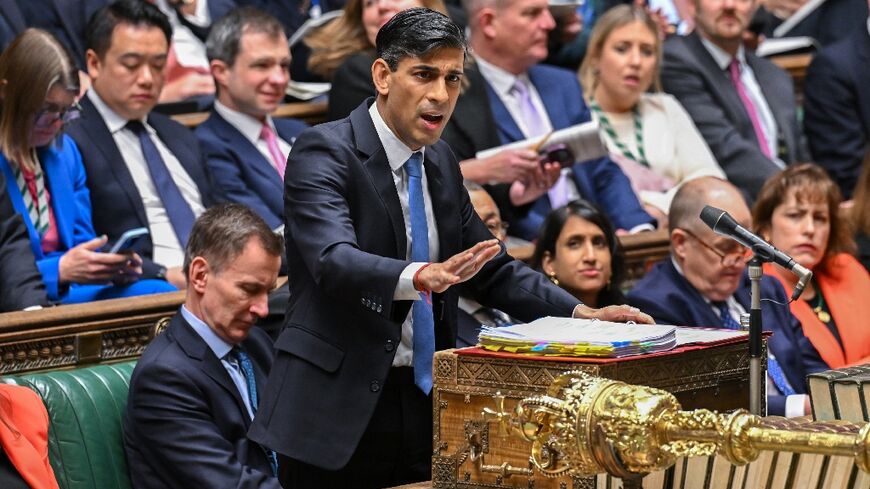UK's Sunak warns Huthis of more attacks

Prime Minister Rishi Sunak warned Iran-backed Huthis that Britain would stage new military action if the Yemeni rebels keep attacking shipping in the Red Sea.
"We are not seeking a confrontation," he told parliament hours after a second round of US-UK strikes.
"We urge the Huthis and those who enable them to stop these illegal and unacceptable attacks.
"But if necessary, the United Kingdom will not hesitate to respond in self-defence. We cannot stand by and allow these attacks to go unchallenged," Sunak added.
Royal Air Force jets struck two military sites just north of the Yemeni capital Sanaa, "each containing multiple specific targets, which the Huthis used to support their attacks on shipping", Sunak said.
He informed MPs that the government's initial evidence was that "all intended targets were destroyed".
Sunak added that the joint military operation with the United States, which followed similar strikes on January 11, were "working to degrade" the Huthis' capability to launch attacks.
He insisted the strikes were "limited", in line with international law and that no decision has been made to start a sustained campaign against the rebel group.
Since the first strikes, the United States has also launched individual air raids against missiles that Washington said posed imminent threats to civilian and military vessels.
- 'Horrible choices' -
However, the Huthis have vowed to maintain their attacks -- part of a growing crisis in the Middle East linked to the Israel-Hamas war, which has raised tensions across the region as well as fears of a broader war directly involving Iran.
The Huthis warned on Tuesday that the US-British strikes would not go "unanswered and unpunished".
Farea al-Muslimi, a research fellow at the international affairs think-tank Chatham House, said events appeared to be shifting "from a hoped-for single action... to a longer-term military operation in Yemen".
Although targeting the rebels appeared to be "backfiring in many ways", the transatlantic allies had nothing but "horrible choices", he added.
"If you let the Huthis get away with these strikes, then that sends a bad message and it also inspires a lot of militias in the Horn of Africa but also across the world," he told AFP.
"At the same time, if you go into fighting with the Huthis you risk a huge regional escalation."
Al-Muslimi argued Britain and the United States should have acted with the backing of the United Nations General Assembly "instead of acting unilaterally".
"Acting via the UN General Assembly and having more international support, especially from the Global South, would make at least alternative policy choices more rational."





